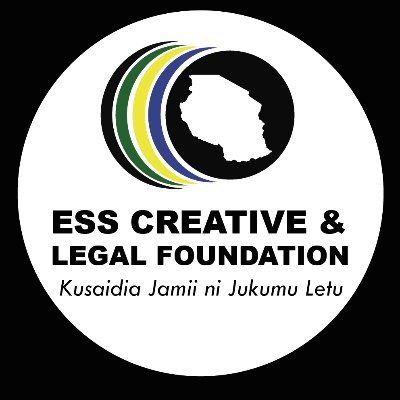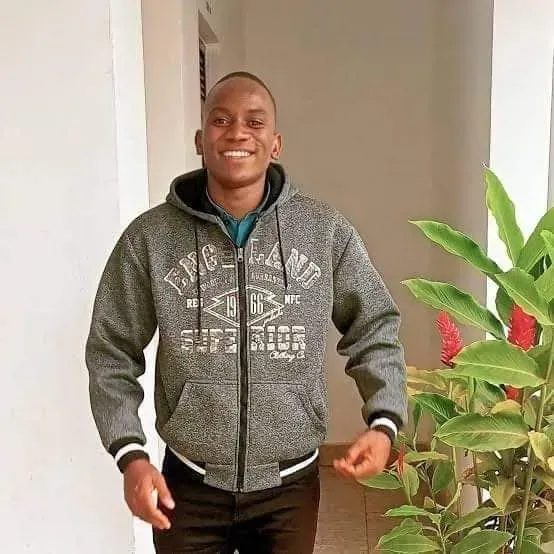Introduction
In a world where access to justice often comes with a hefty price tag, Tanzanian entrepreneur Erick Mukiza has taken bold steps to bridge the gap for middle-income earners. As the founder of ESS Creative and Legal Foundation, Erick’s mission is to provide affordable legal representation and alternative dispute resolution (ADR) services to those who fall between the cracks of the existing legal system. His journey from personal inspiration to establishing a groundbreaking legal assurance service is a testament to his dedication to making justice accessible to all.
Genesis of ESS Creative and Legal Foundation
Erick Mukiza’s entrepreneurial journey began with a deeply personal experience. His mother, Grace, a primary school teacher, faced the harsh reality of being unable to afford legal representation. This experience planted a seed in Erick, fueling his passion to ensure that others in similar situations could access justice affordably. Recognizing the barriers that many middle-income earners face in securing legal services, Erick was driven to create a solution that would serve this underserved segment of the population.
Mission and Core Values
Founded in 2018, ESS Creative and Legal Foundation operates with a clear mission: to be a reputable alternative dispute resolution center, offering affordable legal support to individuals who are not eligible for free legal aid and who cannot afford private advocates. The organization’s vision is simple yet powerful—"legal representation and alternative dispute resolution (ADR) are accessible to all." Guided by core values of integrity, transparency, confidentiality, and neutrality, ESS is committed to delivering justice to those who need it most.
Services and the Unique Legal Assurance Model
At the heart of ESS Creative and Legal Foundation is its innovative Legal Assurance coverage. This service functions like having a lawyer on retainer, providing members with access to legal representation and ADR services before any legal issues arise. With four different subscription tiers—Gold, Platinum, Silver, and Copper—customers can choose the level of coverage that best suits their needs, from individual plans to family coverage.
The Legal Assurance service is more than just a product; it is a lifeline for those who would otherwise be unable to afford legal services. Priced affordably at Tsh 10,000 (approximately $4) per month, the service currently supports over 2,800 members, primarily in Dar es Salaam. These members, ranging from teachers to small business owners, can now confidently say, “Don’t talk to me, talk to my lawyer,” knowing that they have access to professional legal support whenever needed.
Revenue Model and Sustainability
ESS Creative and Legal Foundation operates on a subscription-based business model, generating recurring annual revenue from its Legal Assurance service. This model not only ensures financial sustainability but also allows the organization to provide affordable services to a wide customer base. By resolving 70% of cases through ADR and keeping legal costs low, ESS is able to maintain a profitable operation while making a meaningful impact on the lives of its members.
Target Market and Customer Insights
ESS’s primary market consists of middle-income earners, including teachers, nurses, police officers, and small business owners. These individuals, who earn between $150 and $500 per month, often find themselves ineligible for free legal aid yet unable to afford the high fees of private advocates. ESS fills this gap by offering an affordable alternative, ensuring that justice is not a privilege reserved for the wealthy but a right accessible to all.
Challenges and Overcoming Obstacles
Like any entrepreneurial journey, Erick’s path has not been without challenges. One of the most significant hurdles has been effectively communicating the value of ESS’s services to potential customers and funders. Initially, the team struggled with unclear messaging, which hindered their ability to convert interest into subscriptions. Through capacity-building training and strategic messaging, ESS refined its communication approach, leading to improved customer acquisition and retention.
Another challenge was establishing a clear market position in a competitive legal landscape. By emphasizing the organization’s unique relationship with the government justice system and its accreditation to provide ADR services, ESS was able to differentiate itself from other legal service providers.
Innovating to Stay Ahead
Innovation has been a cornerstone of ESS Creative and Legal Foundation’s success. By identifying the unmet needs of its target market, the organization developed a unique service that fills a critical gap in Tanzania’s justice system. This customer-focused innovation has not only driven growth but also positioned ESS as a leader in the legal services industry.
Milestones and Achievements
Since its inception, ESS Creative and Legal Foundation has achieved significant milestones. The organization has been recognized internationally, winning accolades such as the Innovating Justice Challenge organized by the Hague Institute of Innovation for Law (HiiL) in 2019 and the Tony Elumelu Foundation Social Entrepreneurship Program in 2021. Additionally, ESS has made a substantial impact on the local community, reaching over 60,000 people through public legal education initiatives.
Vision for the Future
Looking ahead, Erick Mukiza’s long-term vision for ESS Creative and Legal Foundation is to integrate the Legal Assurance service into Tanzania’s national justice system. By working closely with the Ministry of Constitutional and Legal Affairs, Erick aims to ensure that legal representation and ADR services are accessible to all Tanzanians, regardless of their income level.
Advice for Aspiring Entrepreneurs
Erick’s journey offers valuable lessons for aspiring entrepreneurs. His advice is simple but profound: “Think of your business not just as a profit-making vehicle for you and your family, but as a way to employ other young people in your community, thereby lifting them out of poverty. We cannot continue sidelining young people, especially women, in economic activities.”




